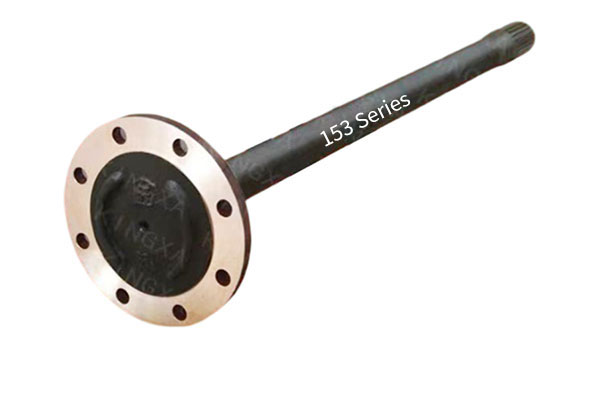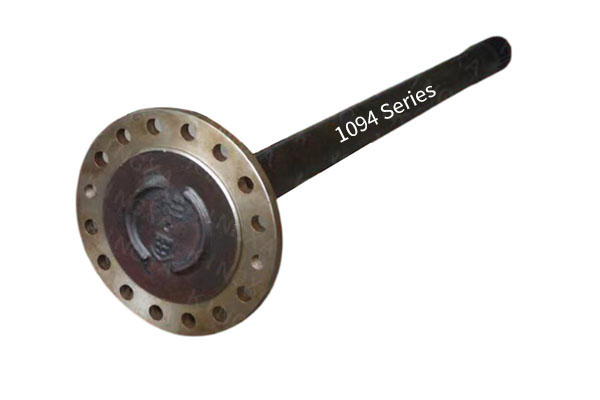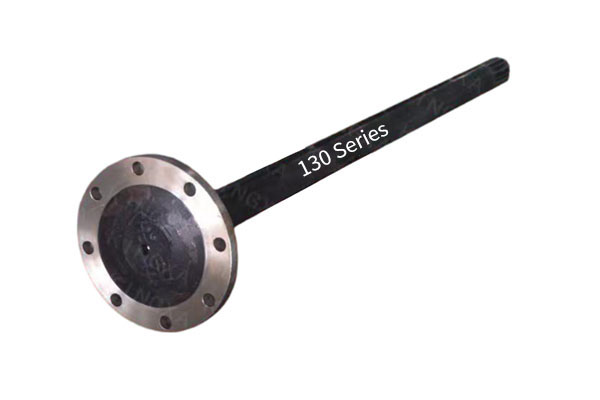Favorable policies have been introduced one after another, and the truck industry is expected to achieve renewal and upgrading
The truck industry is once again receiving double policy benefits. First, on July 25, the National Development and Reform Commission and the Ministry of Finance jointly issued the "Several Measures on Strengthening Support for Large-Scale Equipment Updates and Consumer Goods Trade-in", which will mobilize about 300 billion yuan of ultra-long-term special treasury bonds to strengthen support for large-scale equipment updates and consumer goods trade-in. It is clearly stated that support will be provided for the scrapping of diesel trucks operating at the National III emission standard and below, and the acceleration of the update to low-emission trucks. For scrapping and updating qualified trucks, an average subsidy of 80,000 yuan per vehicle will be provided. For updating and purchasing qualified trucks without scrapping, an average subsidy of 35,000 yuan per vehicle will be provided. For scrapping old diesel trucks in advance, an average subsidy of 30,000 yuan per vehicle will be provided. Subsequently, on July 31, the Ministry of Transport and the Ministry of Finance jointly issued the "Notice on the Implementation of the Scrapping and Renewal of Old Commercial Trucks", further refining the subsidy policy for scrapping and renewal and the purchase of new energy or National VI standard trucks, and clarifying that new energy heavy trucks can receive a maximum subsidy of 140,000 yuan (including a scrapping subsidy of 45,000 yuan and a new purchase subsidy of 95,000 yuan), and National VI heavy trucks can enjoy a maximum subsidy of 110,000 yuan (including a scrapping subsidy of 45,000 yuan and a new purchase subsidy of 65,000 yuan). The introduction of these two policies will undoubtedly inject strong impetus into boosting the demand for the truck market, and also indicate that the industry is about to usher in a new round of development climax.
Subsidy policies stimulate market vitality
"For the truck industry, the release and implementation of the two support policies is undoubtedly a major boon. It will not only lead the transformation and upgrading of my country's transportation industry, but also bring new development opportunities to the truck industry." Zhong Weiping, secretary general of the Commercial Vehicle Professional Committee of the China Automobile Dealers Association, said that the subsidy policy aims to accelerate the elimination of old vehicles through economic incentives and promote the popularization of low-emission trucks. This move has injected a shot in the arm for the truck industry, which is expected to further stimulate market vitality and boost industry confidence.
Liu Dacheng, deputy director of the Internet Industry Research Institute of Tsinghua University and director of the Logistics Industry Research Center, analyzed that this subsidy policy uses the elimination and renewal of old vehicles and electrification as a breakthrough to promote the development of the truck industry in a green and low-carbon direction, which is conducive to improving the industry's competitiveness and sustainable development capabilities. At the same time, the promotion and application of new energy operating trucks will drive the development of related industrial chains, including the production and sales of core components such as batteries, motors, and electronic controls, as well as the construction and operation of charging facilities, which will bring new growth points to the commercial vehicle industry.
Yang Jinguo, deputy general manager of China Automotive Brothers and founder of the China Automotive Truck Brothers Club, said that due to backward technology and aging equipment, old operational diesel trucks often have problems such as low transportation efficiency, high failure rates and major safety hazards. By phasing out these vehicles and replacing them with low-emission trucks with better performance and more advanced technology, the efficiency and safety of road transportation will be significantly improved.
Cui Dongshu, secretary-general of the Passenger Car Market Information Joint Branch of the China Automobile Dealers Association, pointed out that the substantial increase in the subsidy amount for automobile elimination and renewal will not only alleviate the difficulties faced by the market due to excessive "price wars", but also stimulate the endogenous driving force of the market by incentivizing the replacement of old vehicles and promote the development of the entire industry in a healthier and more orderly direction.
In addition, the release of the subsidy policy will also bring a win-win situation for all parties. For transportation practitioners, they can obtain substantial subsidy benefits. For truck manufacturers, they will usher in new market demand growth points, thereby promoting product upgrades and technological innovations. For the truck industry, promoting low-emission models is an important manifestation of accelerating the transformation of the energy structure, promoting the upgrading of the commercial vehicle industry, and achieving high-quality development of the industry.
Further release market demand
Since the State Council issued the "Action Plan to Promote Large-Scale Equipment Renewal and Consumer Goods Replacement", many provinces have responded positively and issued policy details to promote the replacement of transportation equipment. This policy has been further deepened, which not only effectively connects and complements the policies, but also further clarifies the direction of transportation equipment replacement, providing strong policy guidance for the sustainable development of the industry.
"In the short term, the release of favorable policies will further boost the demand for trucks." Ren Shifa, an expert in the commercial vehicle industry, said that high subsidies will attract a large number of transport practitioners to scrap old vehicles in advance and purchase new vehicles or new energy vehicles, thereby driving the growth of truck market sales. Especially in the current market environment dominated by stock replacement demand, accelerating the elimination of old vehicles may be the biggest driver of new growth in the commercial vehicle market.
"Indeed, from the perspective of market sales, the subsidy policy is expected to rapidly increase truck sales. For those transportation companies and car owners who were originally hesitant due to financial pressure, high subsidies will become a key factor in their determination to replace old vehicles. For those users who use diesel trucks with National III emission standards and below, updating vehicles not only means being able to enjoy policy dividends, but also improving transportation efficiency and reducing operating costs." Yang Jinguo further said.
During the interview, many industry insiders believed that the release of the two support policies will activate the potential for the elimination of old vehicles and the replacement of new vehicles. The heads of many mainstream truck companies also said that the subsidy policy will gradually leverage new growth points in the truck market. On the one hand, accelerating the elimination of old operating diesel trucks will release huge market potential and provide broad space for new car sales; on the other hand, the transformation of operating trucks to electrification can not only promote the upgrading of consumption structure, but also inject new vitality into the technological development of truck companies.
According to data provided by the Beidou system, as of now, the number of National III heavy trucks is about 440,000, including 102,600 tractors, 160,000 trucks, 96,000 dump trucks, 51,000 special vehicles, and 29,000 mixer trucks. The industry generally expects that, driven by a number of favorable policies, National III diesel vehicles are expected to reach a peak of elimination this year and next, bringing new growth momentum to the truck market.
In addition, the reporter learned during the visit that many truck manufacturers have begun to actively adjust their production plans and increase production efforts to meet the potential market demand. At the same time, dealers are also busy preparing promotional activities to provide consumers with more convenient car purchase services.
"The recent introduction of a series of supporting policies is a major boon to dealers. We have quickly adjusted our sales strategy and stepped up promotion of new energy trucks and National VI standard trucks. At the same time, we are also actively communicating with manufacturers to gain more resource support to cope with the possible surge in market demand," said Liu Zhiwen, a Beijing heavy truck dealer.
However, facing the opportunities brought by the policy, dealers are not without worries. Zhang Qiang, a heavy truck dealer in Henan, said frankly: "It will take time to test the effectiveness of the policy, and there is a certain degree of uncertainty in the market response. We are worried that some customers may hesitate due to a lack of understanding of the policy or a lack of funds."
Multi-pronged approach to promote healthy development of the industry
Although the two policies have brought significant benefits to the truck industry, in order to truly achieve healthy and sustainable development of the industry, supporting measures need to be continuously followed up and improved.
"The first task is to establish and improve the vehicle scrapping supervision system and increase the intensity of investigation and punishment of illegal behaviors." Yang Jinguo said that the whole process of vehicle scrapping can be supervised through information technology to ensure that scrapped vehicles are properly handled. At the same time, it is also necessary to strengthen the management of scrapped vehicle dismantling companies, standardize dismantling behaviors and improve dismantling efficiency. In addition, relevant government departments need to strengthen the supervision of operating diesel trucks to ensure that old high-emission vehicles are withdrawn from the market in accordance with the law.
Zhong Weiping believes that optimizing vehicle renewal processes and financial services is also critical. He proposed that in the process of eliminating and updating old vehicles, it is necessary to provide transportation companies and car owners with convenient vehicle renewal paths, simplify vehicle renewal procedures, shorten approval time, and reduce renewal costs. At the same time, car companies and dealers should also strengthen cooperation with financial institutions to provide car owners with convenient loan and insurance services.
In addition, establishing a reasonable freight rate mechanism is also a crucial link. "In view of the current market situation of more vehicles and less cargo, and low freight rates, relevant government departments should further strengthen the monitoring of the road freight market, timely guide and reasonably regulate the market capacity, achieve a basic balance between supply and demand, actively guide the market's freight rate expectations, establish a reasonable freight rate mechanism, promote the formation of a reasonable interest chain between cargo owners, logistics companies, platform companies, and truck drivers, and effectively maintain the healthy and stable development of the road freight industry. Only in this way can various support policies play their due role." Yang Jinguo finally said.







